Memorial Day Weekend
In honor of Memorial Day, we will be stepping away from the computers this weekend. We'll see you again Tuesday, May 30.
In honor of Memorial Day, we will be stepping away from the computers this weekend. We'll see you again Tuesday, May 30.
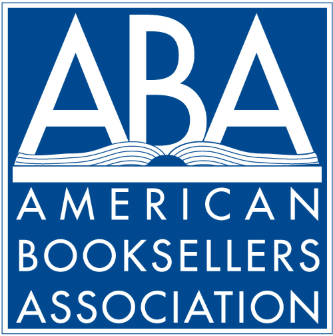 Among the good news announced at the American Booksellers Association annual meeting yesterday: ABA membership has risen 34% since 2020 and now includes 2,185 bookstore companies with 2,599 bookstore locations. Since the pandemic started, 475 new stores have opened, 140 of them BIPOC-owned. In 2022, 173 member stores opened and 53 closed. In 2023, already 56 stores have opened, while 198 are in the pipeline to open in the next year or two.
Among the good news announced at the American Booksellers Association annual meeting yesterday: ABA membership has risen 34% since 2020 and now includes 2,185 bookstore companies with 2,599 bookstore locations. Since the pandemic started, 475 new stores have opened, 140 of them BIPOC-owned. In 2022, 173 member stores opened and 53 closed. In 2023, already 56 stores have opened, while 198 are in the pipeline to open in the next year or two.
In addition, association financials are "sound," reported Kelly Estep of Carmichael's Bookstore, Louisville, Ky., co-vice president/secretary of the board. With an annual budget of about $9 million and 39 employees, the ABA was on budget in fiscal year 2022. Income from its investment portfolio of $26 million (primarily from the sale of the old ABA show to Reed Elsevier in the 1990s) helps support the association. The association spent $2.6 million of a $3 million investment in IndieCommerce 2.0. In FY2023, ABA revenue is projected at almost $8 million, and expenses are projected to be almost $9 million because of inflation in general and the rising costs of Winter Institute and the Children's Institute. (The cost of the in-person Winter Institute rose 50% between Baltimore in 2020 and Seattle in 2023.)
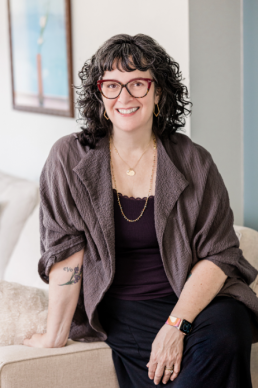 |
|
| Christine Onorati | |
On her final day as president of the ABA, Christine Onorati of WORD Bookstores in Brooklyn, N.Y., and Jersey City, N.J., noted that her six years on the board had included "the announcement that our long-time CEO was retiring, the search and hiring of a new CEO, the Covid pandemic, movements for social justice, book banning, labor issues, fierce antitrust efforts, and a focus on recentering the organization's values and making systemic changes to the board itself that reflected those values. I am unendingly proud of what this board has accomplished in these six years and I'm confident that the new board will focus on continuing that work."
She added that one of her main goals when she joined the board was "to empower the next generation of booksellers and give them the tools to succeed." Considering that half of the booksellers at Winter Institute in Seattle this year were attending for the first time, she's confident that the association has made "great strides in that area." In a similar way, moving indie bookselling into "the technological future" was another goal, and Bookshop's fast growth "is a pretty great start."
In the last year, Onorati said that among the board's actions were:
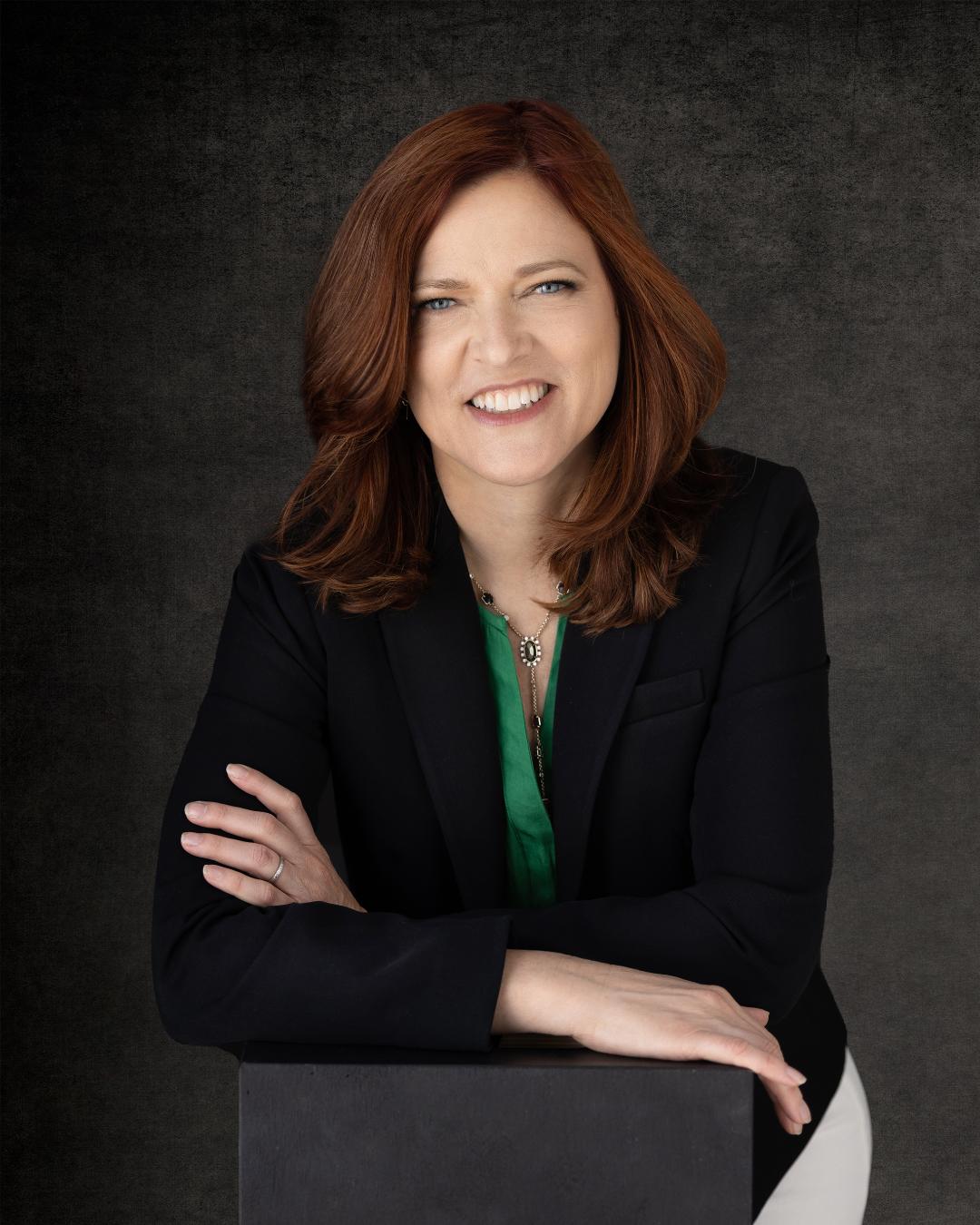 |
|
| Alison Hill | |
In her CEO report, Allison Hill called 2022 "a year of incredible growth for the indie channel" and said that the ABA was "honored to play a role in supporting and championing your stores. Independent bookstores continued to demonstrate remarkable resilience, adaptability, creativity, and passion. Most of you experienced sales above pre-pandemic levels and many of you grew--expanding, adding second locations, growing and evolving from a pop-up or mobile store to a bricks-and-mortar store, or vice versa. The indies rocked it in 2022."
Of course, the year was "incredibly challenging as pandemic issues continued and new ones emerged," she continued. "As I visited your stores, it was amazing to see that even with those challenges, your businesses survived and, in many cases, thrived, and you all were able to preserve the magic that is independent bookstores."
She noted a range of accomplishments by the ABA in 2022:
Pointing to the 34% increase in membership in the past three years, as well as 173 stores opening in 2022, Hill said, "The future is indie. ABA wants to not only support you in that future, but help make it possible. In a time when too many individuals are focused on taking books out of readers’ hands, your work putting books in people's hands is more important than ever." --John Mutter
 During the ABA Community Forum held yesterday afternoon, Elizabeth Jordan of Nowhere Bookshop in San Antonio, Tex., brought up Texas House Bill 900, which requires book vendors to review and define books sold to public schools as being sexually explicit or sexually relevant, among other stipulations, and was passed by the Texas Senate a few days ago.
During the ABA Community Forum held yesterday afternoon, Elizabeth Jordan of Nowhere Bookshop in San Antonio, Tex., brought up Texas House Bill 900, which requires book vendors to review and define books sold to public schools as being sexually explicit or sexually relevant, among other stipulations, and was passed by the Texas Senate a few days ago.
Governor Greg Abbott is expected to sign the bill into law soon, with Jordan remarking it will make it all but "impossible to sell books to schools" in Texas. And though Texas is the first state to do this, she noted, it will not be the last; Jordan asked what the ABA and ABFE are doing with regard to the bill and what guidance and support they can provide to booksellers. Jordan also pointed out this won't exclusively affect indies but also companies like Barnes & Noble and Scholastic, and she suggested that indie booksellers might benefit from working with some "strange bedfellows."
ABA CEO Allison Hill reported that the association plans to hire another employee to assist with this issue and to help formulate strategy going forward, and the ABA has had conversations with B&N about book bans and worked with them in the Virginia Beach, Va., case. They've also supported ABFE and for this issue "everyone is coming to the table."
ABFE director David Grogan said the immediate next step is to meet with the coalitions ABFE has been working with in Texas to "see what we can come up with," and he agreed that there are "going to be other states" that pass similar bills. He also commended Texas booksellers, who were "amazing" in their advocacy efforts against the bill, and he regretted that it "unfortunately wasn't enough."
Lisa Swayze of Buffalo Street Books in Ithaca, N.Y., also wondered what booksellers in states not facing this issue can do to help booksellers in states like Texas.
Brein Lopez of Children's Book World in Los Angeles, Calif., noted that indies across the country are in a position to support and find people within their respective communities who want to take leadership positions against the banning of books and for the right to read. Stores have the opportunity to "find those people and work together," and Lopez urged that indies "need to do it now."
The ABA's recent meetings with publishers was another significant topic of discussion. On the agenda this year was school business, with Cynthia Compton of 4 Kids Books & Toys and MacArthur Books, Carmel, Ind., reporting that the need for distinct school policies and streamlined B2B sales was made clear, and how, in the current way of doing things, far too much work is getting "pushed onto booksellers."
Discussions also included the need for better terms, with Hill noting that within the larger terms conversation, the ABA emphasized to publishers the need to simplify and streamline things, as "efficiencies in the business" are needed now more than ever. Other topics involved diversity in the industry and the wave of book banning, and Hill said it was an encouraging sign that a number of publishers brought up topics from the previous year's meetings. She also relayed that in "every meeting" she heard from publishers that they need better data, and Hill encouraged booksellers to report their sales to Bookscan and Above the Treeline. With better reporting, indies can leverage that data and have a way to "move the needle."
John Evans of DIESEL, with bookstores in Brentwood and Del Mar, Calif., mentioned that with both Amazon and B&N cutting back on orders and publishers in turn cutting back on employees, services provided, and books published, this has created a "turbulent time" for booksellers; he wondered if any publishers had shared where they thought the industry was going.
In her three years of meeting with publishers as head of the ABA, Hill said, this year was the "most dire" she's seen them. While the indie channel is growing in market share, it is still a "small sliver overall," and when national accounts like B&N and Amazon make significant changes, it creates a "ripple effect that impacts us all." There is no "magic bullet" that will fix the problem, she continued, and the next couple of years will likely be "challenging," but better reporting from indies could help significantly with the forecasting difficulties that publishers are having.
Danny Caine of the Raven Book Store in Lawrence, Kan., said this year marked his first time taking part in publisher meetings, and it struck him that although "the news was often bad," all the publishers he saw "remained committed to indie bookstores being part of the solution." He was frankly and pleasantly surprised by "how credible their support for us seemed." --Alex Mutter
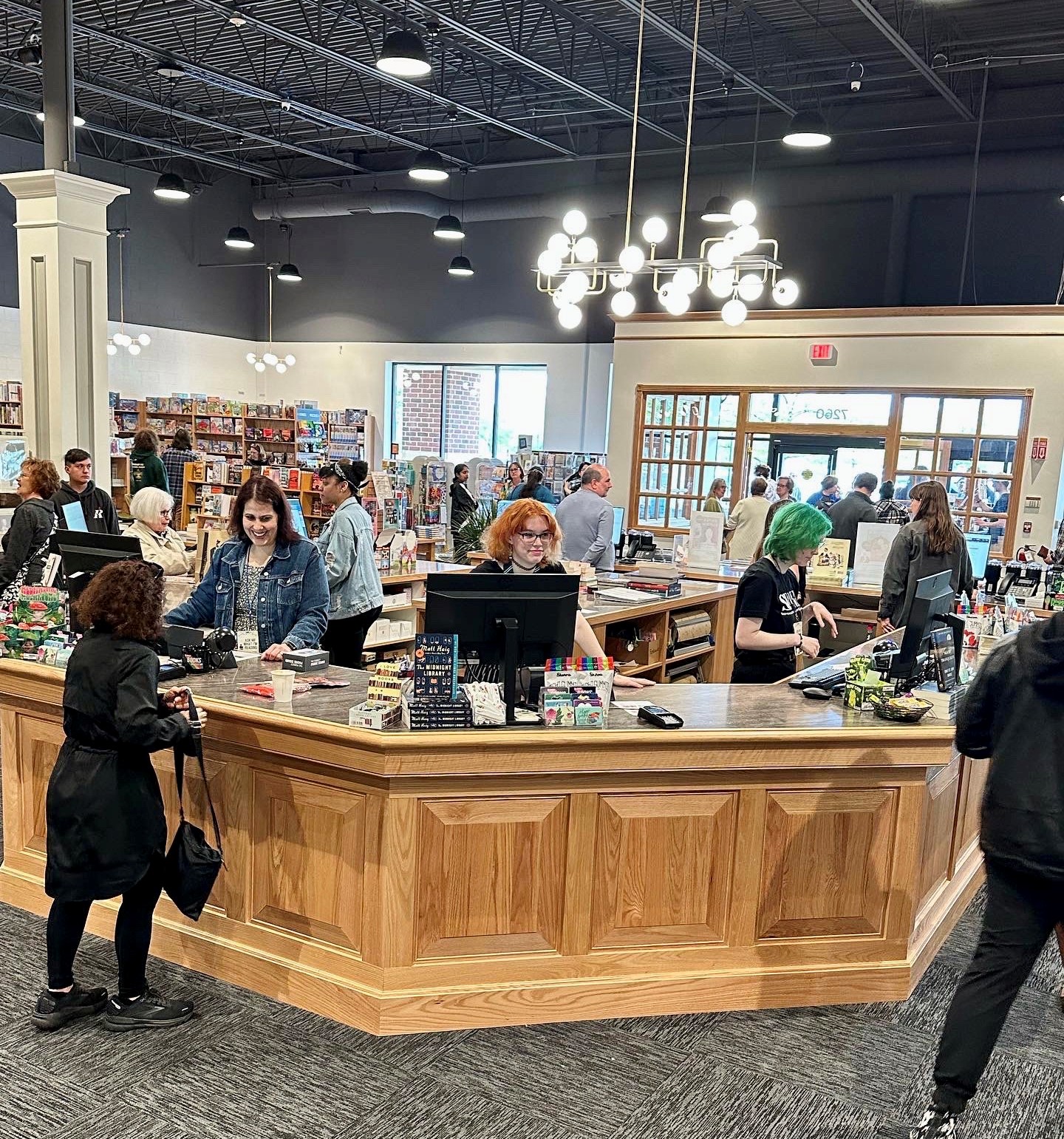
Located in the Gateway Center at 7260 Orchard Lake Road, the 19,000-square-foot general-interest bookstore carries all genres, features children's and used book sections, seats up to 200 for author events, and also carries stationery, gifts, games, puzzles, and toys. The store is set to host a full schedule of both virtual and in-person events.
When Schuler Books announced plans for the expansion last year, Bill Fehsenfeld, co-owner with his wife, Cecile Fehsenfeld, said, "We've long dreamed of having a bookstore in the metro-Detroit area and spent a lot of time looking for a spot that was just right. We think West Bloomfield is the perfect location."
Grand opening day featured a cappuccino cart serving up complimentary beverages, food from local bakeries and restaurants, free gifts, and a chance to win book-filled totes and new branded items. Author Aya Khalil led a storytime for the store's inaugural event.
Schuler Books noted that "excitement was high as the community has been without a bookstore for eight years," and the new store "was as busy as the busiest holiday shopping days and it was wonderful to welcome and meet so many new customers. Countless hours of hard work and prep by everyone on the Schuler Books team... went into making the store ready. Our owners and staff members from every store were on hand to assist customers and enjoy the celebration."
The Fehsenfelds founded Schuler Books in 1982. It also has locations in Grand Rapids, Okemos, and Ann Arbor.
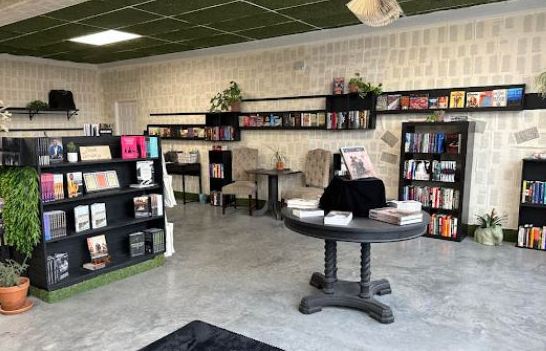
Founded in fall 2022 by Sequoia Schmidt, DAP Books was created to be the retail storefront for Schmidt's publishing company, Di Angelo Publications. After several months of trying to run both the bookstore and the publishing operation, Schmidt decided to step back from the bookstore. She did not want to see it close, however, so she posted on a local moms and wives group on Facebook inviting anyone interested in owning a bookstore to submit an application.
Mack, who has had a lifelong dream of opening a bookstore, was "doing online schooling for my bachelor's" and "homeschooling four kids" at the time. She thought, "Yes, I'll take a bookstore!"
Schmidt told the Times-News that she was looking for someone who had "been a part of this community for many, many years, and who's going to be in this community for many, many years." She posted in a mom group, she explained, because she felt moms would already be adept at handling unexpected challenges.
"Generally what I've found with my friends who are moms is they can handle hard things," Schmidt elaborated. "They have challenges thrown at them all the time, and they find a way to make it work, and they keep that little human alive, and that's kind of like keeping a business alive.”
Schmidt will continue to own the building at 250 Main Ave. N., which will still house both the distribution center for Di Angelo Publishing as well as the bookstore. Mack will lease the bookstore's space from Schmidt, and the inventory will consist of titles released by Di Angelo Publications and whatever Mack decides to stock. So far, Mack has brought in mainly used books to supplement the inventory.
Mack intends to expand the bookstore's events offerings and has ideas for art classes, workshops and other programs. In particular, she's looking to offer things that would appeal to other parents who are homeschooling their children.
"I like being able to get lost in a story. I have various styles that I like... but I'm not against any other genre," Mack remarked. "I have found some of the best books I've ever read by walking through a store and randomly picking one that I would have never picked before."
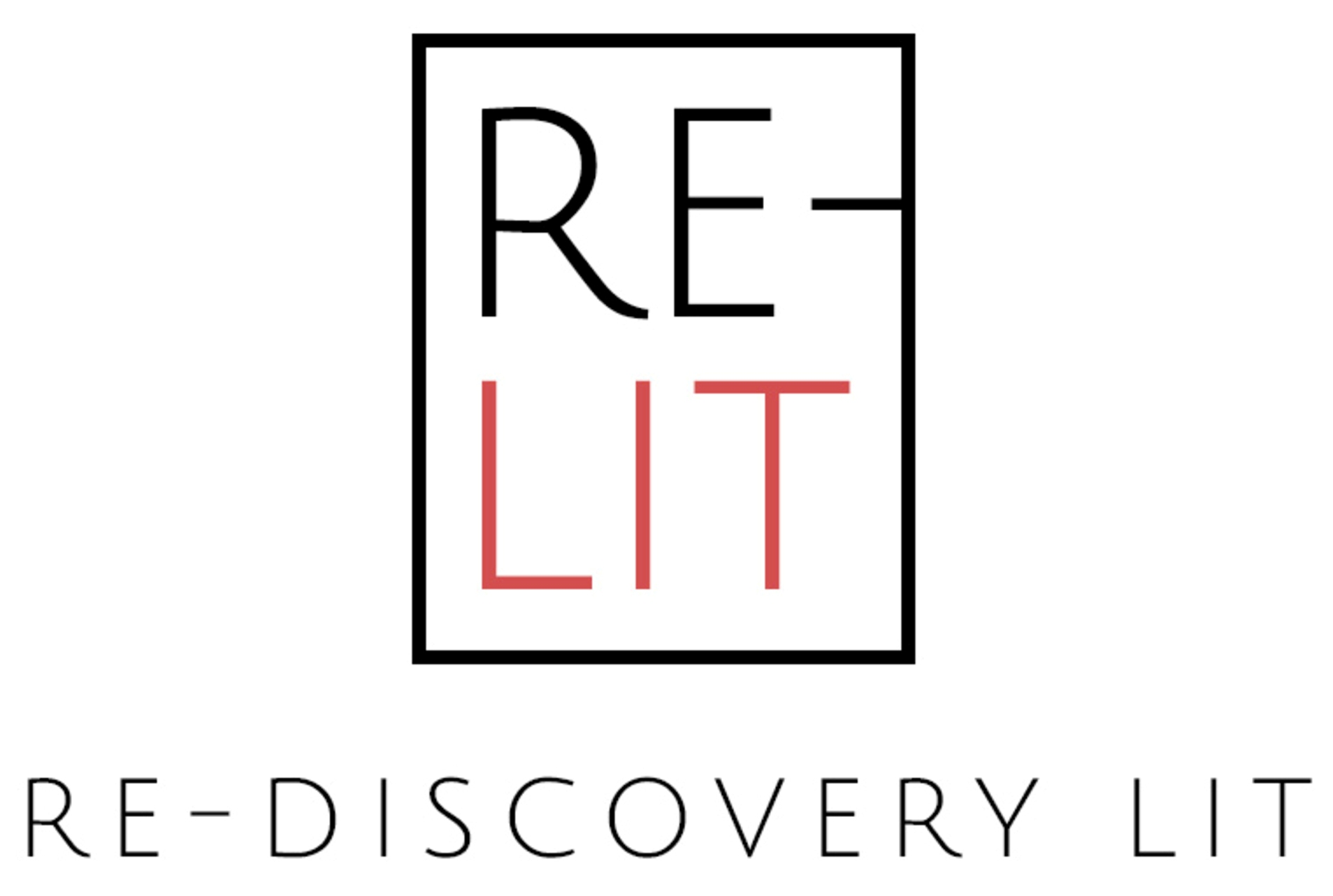
Open Road Integrated Media, which specializes in using technology to improve book discovery, especially backlist e-books and frontlist titles in all formats for a range of publishers, is launching Re-Discovery Lit, an imprint that will republish out-of-print and reverted books, which will be available in print format via Ingram.
Some 50 titles are involved to start and include A Single Rose and Threats and Promises by Barbara Delinsky; Ring Around the Sun and The Visitors by Clifford D. Simak; Season Ticket and A Day in the Life of Roger Angell by Roger Angell; Exile, Texas, and Copper Moon by Rachel Caine; the Journeys of the Catechist trilogy by Alan Dean Foster; and Floating Staircase and Snow by Ronald Malfi.
Under an agreement with Alloy Entertainment, Re-Discovery Lit will republish selected Alloy series, including the Fingerprints YA series by Melinda Metz and the thriller series Who Killed Peggy Sue? by Eileen Goudge.
"As we continue to help publishers reach new readers for their previously published books, it became clear to us that republishing worthy out-of-print and reverted titles is another way we can serve the industry," said David Steinberger, chairman and CEO of Open Road. "These books deserve to be discovered and read again, and our technology will get them in front of the right readers."
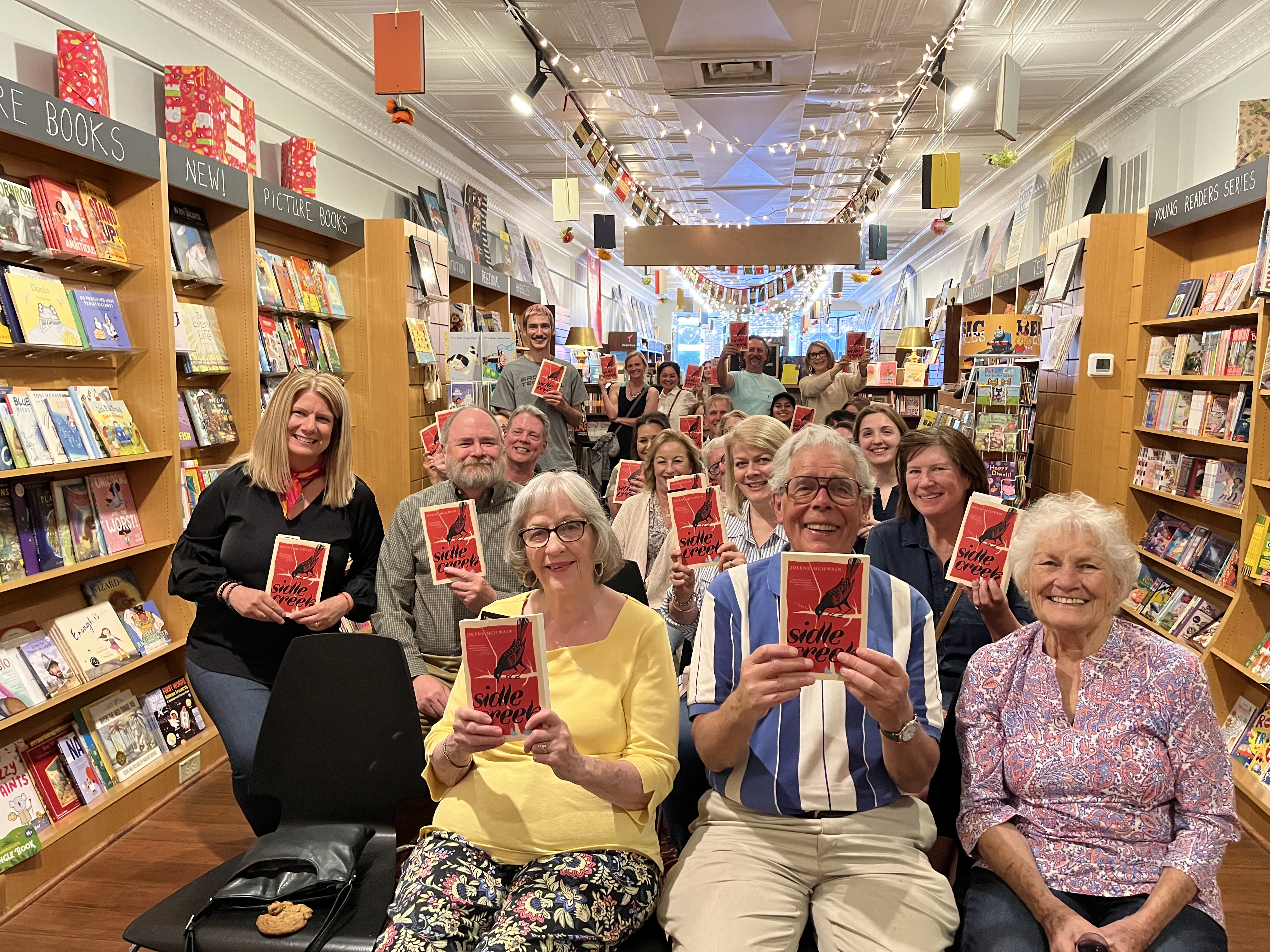 It was a full house for the launch of Jolene McIlwain's (at left in black) story collection Sidle Creek (Melville House) at Penguin Bookshop in Sewickley, Pa.
It was a full house for the launch of Jolene McIlwain's (at left in black) story collection Sidle Creek (Melville House) at Penguin Bookshop in Sewickley, Pa.
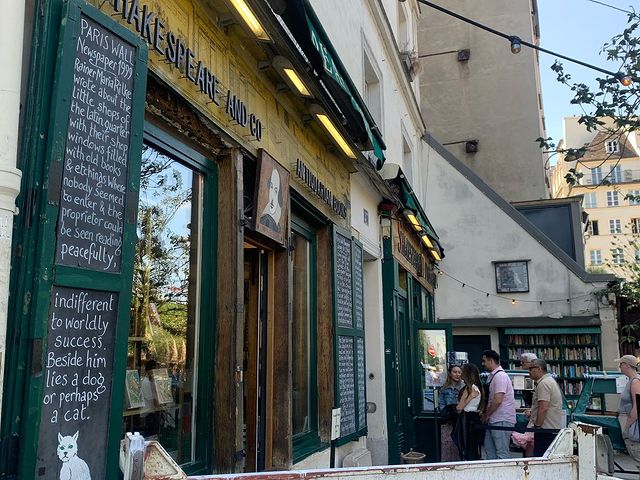 Posted on Instagram by Wild Geese Bookshop, Franklin Ind.: "25 years ago, I had a date @shakespeareandcoparis and we talked about books and favorite poets. It's surreal to be back here with our daughter named after one of those poets and to have a bookshop of my very own. We haven't traveled much since and a pandemic made everything challenging, but some places just inspire you to take big leaps towards joy and love. I hope @wildgeesebookshop does that for you."
Posted on Instagram by Wild Geese Bookshop, Franklin Ind.: "25 years ago, I had a date @shakespeareandcoparis and we talked about books and favorite poets. It's surreal to be back here with our daughter named after one of those poets and to have a bookshop of my very own. We haven't traveled much since and a pandemic made everything challenging, but some places just inspire you to take big leaps towards joy and love. I hope @wildgeesebookshop does that for you."
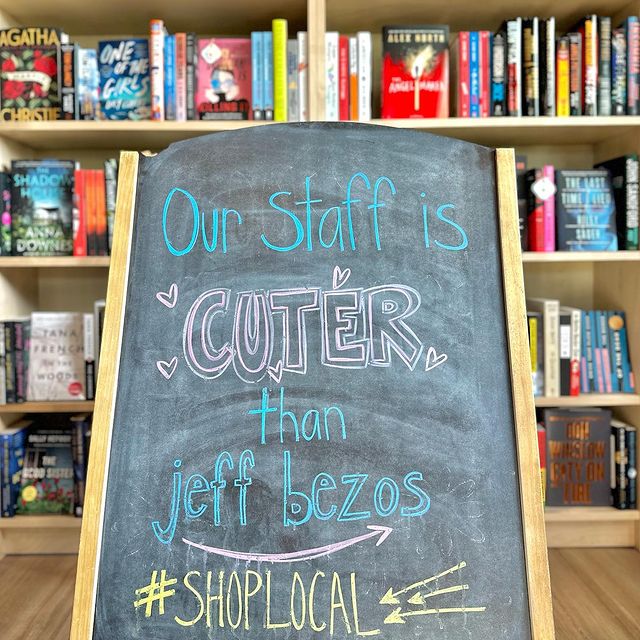 "Our staff is cuter than Jeff Bezos. #ShopLocal" was the sidewalk chalkboard message outside Poppy Books & Gifts, Spanish Fork, Utah, which posted on Instagram: "Want to know why books on Amazon are so much cheaper than any bookstore? They sell books for nearly 0% profit, and occasionally at a loss, in order to price out small bookstores. Their hope is that the competition will be eliminated, and they'll be able control the market and bump up the price of books to what they are in reality. GROSS! If you appreciate personalized recommendations, keeping money circulating in your local economy, cute displays, talking books with other book-loving people, or even the experience of going to the bookstore, support your local indie bookstore today so we're here tomorrow!"
"Our staff is cuter than Jeff Bezos. #ShopLocal" was the sidewalk chalkboard message outside Poppy Books & Gifts, Spanish Fork, Utah, which posted on Instagram: "Want to know why books on Amazon are so much cheaper than any bookstore? They sell books for nearly 0% profit, and occasionally at a loss, in order to price out small bookstores. Their hope is that the competition will be eliminated, and they'll be able control the market and bump up the price of books to what they are in reality. GROSS! If you appreciate personalized recommendations, keeping money circulating in your local economy, cute displays, talking books with other book-loving people, or even the experience of going to the bookstore, support your local indie bookstore today so we're here tomorrow!"
 Skull Water: A Novel by Heinz Insu Fenkl (Spiegel & Grau).
Skull Water: A Novel by Heinz Insu Fenkl (Spiegel & Grau).
Today:
Fresh Air remembers the late Martin Amis.
Monday:
Good Morning America: Susan Spungen, author of Veg Forward: Super Delicious Recipes that Put Produce at the Center of Your Plate (Harper Celebrate, $35, 9780785292982).
Lionsgate has acquired worldwide rights to The Killer's Game, based on Jay Bonansinga's novel. Deadline reported that the film, starring Dave Bautista (Guardians of the Galaxy Vol. 3) and directed by JJ Perry (Day Shift), is launching sales at the Cannes Film Festival. Rand Ravich and Simon Kinberg (X-Men series) wrote the film, with James Coyne handling recent rewrites. Additional casting is underway, with production set to kick off this summer.
"We are so thrilled to be making The Killer's Game with Lionsgate and Endurance," said producer Andrew Lazar of Mad Chance. "We have searched far and wide and we finally found the perfect Joe Flood in Dave Bautista, who balances compelling action and incredible comic timing better than anyone else. And with JJ Perry at the helm, we know this film will deliver the kind of wholly original and unique action that global audiences crave."
Mr. B: George Balanchine's 20th Century by Jennifer Homan (Random House) has won the 2023 Plutarch Award for the Best Biography of 2022, sponsored by the Biographers International Organization (BIO).
Award committee chair Deirdre David said, "For the Plutarch judges, Jennifer Homans' magnificent biography of the choreographer George Balanchine presented a perfect model of seamless narrative integration of the life with the work. With impeccable research, Homans traces Balanchine's life from joining the Imperial Ballet School in Revolutionary St. Petersburg at nine years old to becoming in 1948 the co-founder (with Lincoln Kirstein) of the New York City Ballet. Drawing upon her experience as a trained dancer and her distinction as a ballet critic, Homans creates a thrilling narrative of choreographic innovation that was developed, displayed, and applauded in Russia, in Weimar Germany, in Paris, and eventually in New York. As she puts it, 'his entire life was ballet': the women he loved (and there were many), the music he chose, the dancers he worked with, his 'keen sensuality,' all served the world of ballet. Beautifully crafted, Homans' gorgeous tribute to a 20th-century artistic genius enthralls, educates, and dazzles the reader."
Homans is the dance critic for the New Yorker and a former dancer who trained at George Balanchine's School of America Ballet. She spent more than a decade researching Balanchine's life and times to write a history of the 20th century through the lens of one of its greatest artists.
---
In other BIO news, the organization has received a $1 million gift from biographer Kitty Kelley, author of bestselling, unauthorized biographies of Jacqueline Kennedy Onassis, Elizabeth Taylor, Frank Sinatra, Nancy Reagan, the British royal family, the Bush family, and Oprah Winfrey. Beginning June 1, Kelley is giving the gift in increments of $200,000 over five years.
BIO's long-range planning committee will oversee the gift and make recommendations for its application to the board of directors. The gift is the single-largest contribution ever received by BIO.
---
None of the Above: Reflections on Life Beyond by Travis Alabanza has won the 2023 Jhalak Prize, and When Our Worlds Collided by Danielle Jawando has won the 2023 Jhalak Children's & YA Prize. The awards "seek to celebrate books by British/British resident BAME writers." Each winner receives £1,000 (about $1,235) along with a work of art created by artists chosen for the annual Jhalak Art Residency.
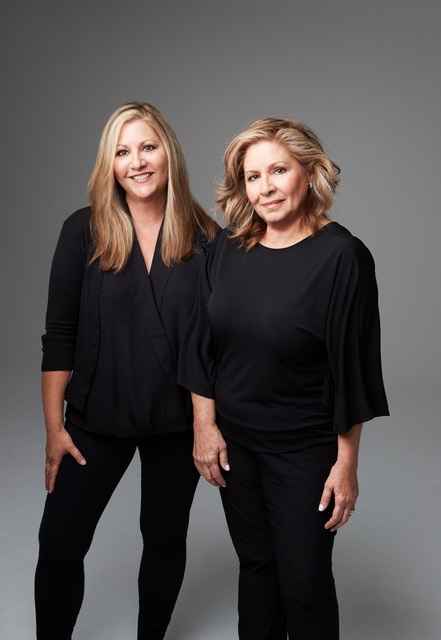 |
|
| photo: Bill Miles | |
Liv Constantine is the pen name of sisters Lynne Constantine and Valerie Constantine. Their books have sold more than one million copies, have been translated into 28 languages, are available in 33 countries, and are in development for both television and film. Their debut novel, The Last Mrs. Parrish, was a Reese Witherspoon Book Club selection. The Senator's Wife, just published by Bantam, is a story about loss and betrayal, as well as a high-stakes, propulsive thriller.
Handsell readers your book in approximately 25 words or less:
A woman suspects her seemingly perfect home health care worker is secretly plotting to steal her husband and reputation--even her life--when, instead of recovering from surgery, she continues getting sicker.
On your nightstand now:
Lynne: So many! Here are my next three: The Love Songs of W.E.B. Du Bois by Honorée Fanonne Jeffers, Signal Fires by Dani Shapiro, and Secluded Cabin Sleeps Six by Lisa Unger.
Valerie: Books tend to pile up on my nightstand when I'm deep in writing/edits. Horse by Geraldine Brooks, Lessons in Chemistry by Bonnie Garmus, Caste by Isabel Wilkerson, Frankenstein: The 1818 Text by Mary Shelley, The Great Alone by Kristin Hannah, All That Is Mine I Carry with Me by William Landay, The Radium Girls by Kate Moore, The Seat of the Soul by Gary Zukav.
Favorite book when you were a child:
Lynne: The Cat in the Hat by Dr. Seuss, then Nancy Drew all through elementary school.
Valerie: Every single Nancy Drew book. When I graduated from Nancy Drew, I moved on to Agatha Christie in my youth.
Your top five authors:
Lynne: This is continually changing as I discover so many wonderful new voices, so I'll choose five that never disappoint: Jane Austen, Patricia Highsmith, Daphne du Maurier, Susan Howatch, and Dean Koontz.
Valerie: The only question harder than this is "Who is your favorite author?" I'm listing those authors whose stories and characters remain vivid, no matter how long it's been since I've read them: Sinclair Lewis, Edna Ferber, Kurt Vonnegut, E.M. Forster, and Susan Howatch.
Book you've faked reading:
Lynne: Don Quixote. We were writing a book that referenced Don Quixote as a favorite of two of our characters, so I tried but didn't finish. It looks good on my bookshelf, though.
Valerie: The Embarrassment of Riches: An Interpretation of Dutch Culture in the Golden Age by Simon Schama. A history professor recommended it and asked if anyone had read it. I remembered seeing a copy of it at home and decided that was pretty close to reading it, so I raised my hand.
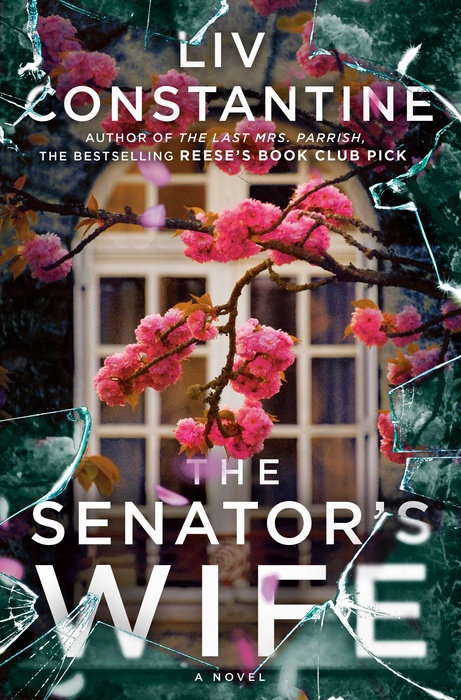 Book you're an evangelist for:
Book you're an evangelist for:
Lynne: What Alice Forgot by Liane Moriarty. It's a poignant, funny, hopeful novel about a woman who hits her head at the gym and wakes up thinking she's 10 years younger than she is. She doesn't understand why she's in the middle of a divorce and why her sister is barely speaking to her. As she tries to understand who she's become between 30 and 40, she rediscovers what really matters in life. I couldn't love this book more!
Valerie: Nobody Will Tell You This But Me by Bess Kalb. This wonderful book about the author's relationship with her grandmother made me cry and laugh out loud. I can't count how many copies I've given to friends and family. It's a book filled with joy, humor, love, sorrow, and all the things that make us human.
Book you've bought for the cover:
Lynne: The Island of Missing Trees by Elif Shafak. The writing is as beautiful as the cover. One of the perspectives is of an olive tree, and I loved hearing the story from the tree's point of view.
Valerie: Jaws by Peter Benchley. That unsuspecting little swimmer at the top and the ENORMOUS shark underneath screamed, "Buy me!"
Book you hid from your parents:
Lynne: None. I guess I was more obedient than Valerie.
Valerie: Tropic of Cancer by Henry Miller. The book was banned when I was a teenager. I was thrilled when my cousin lent me his copy, which I promptly hid in a bureau drawer, reading it only at night when everyone slept. My father found the book and ripped it up (before I got to finish it!).
Book that changed your life:
Lynne: The Element by Ken Robinson. The subtitle is: How Finding Your Passion Changes Everything.
Valerie: The Bible.
Favorite line from a book:
Lynne: "A lawyer with his briefcase can steal more than a hundred men with guns." The Godfather by Mario Puzo.
Valerie: "What if death is a miracle too, but we're too simpleminded to see it?" From The Incredible Winston Browne by Sean Dietrich.
Five books you'll never part with:
Lynne:
The Bible.
The War of Art by Steven Pressfield. A motivational book on not allowing anything to get in the way of your art.
Dorotheos of Gaza, translated by Eric P. Wheeler. A book from my college days that is marked with yellow highlighting, it's a wonderful book of wisdom.
My signed copy of The Brotherhood of the Rose by David Morrell. I met David at my first ThrillerFest over 10 years ago. This book was a standout to me from years earlier and, of course, at the time I never imagined I'd meet the author. David wrote a nice note in it, and I was thrilled. We've since become friends, and this book was the start.
A recipe and advice book that my mother made for me. It's something I treasure.
Valerie:
Main Street by Sinclair Lewis. A satirical look at the intolerance and narrow-mindedness of small-town America.
Ordinary Grace by William Kent Krueger. A beautiful story of love, grief, and forgiveness.
All the King's Men by Robert Penn Warren. A good man corrupted by politics.
Night by Elie Wiesel. The autobiography of Wiesel's horrific time in the Nazi death camps.
The Heart Is a Lonely Hunter by Carson McCullers. The inner lives of lonely and isolated people in a small town.
Book you most want to read again for the first time:
Lynne: Gone Girl by Gillian Flynn. This was such a seminal book in the psychological thriller genre, and I still remember being riveted to the page.
Valerie: Wuthering Heights by Emily Brontë. I read this as a student. All these years and experiences later, I know it would be a very different reading for me now.
Vanishing Maps by Cristina García (Knopf, $28 hardcover, 272p., 9780593534748, July 18, 2023)
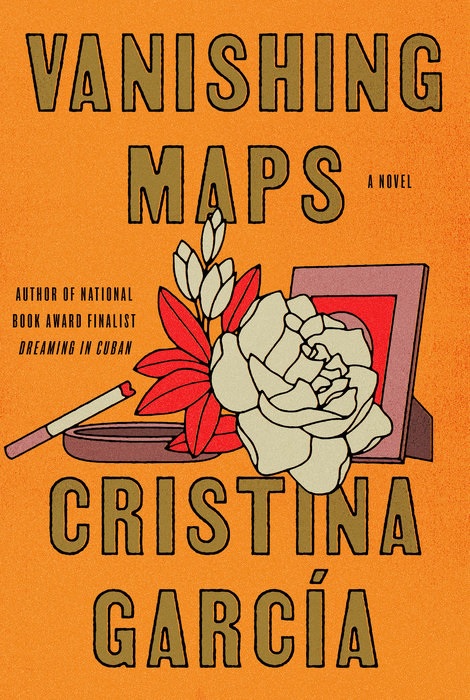 Cuban American novelist and journalist Cristina García debuted her first novel in 1992, the beloved Dreaming in Cuban (a National Book Award finalist), in which she introduced three generations of del Pino women. Nearly a third of a century later, García delights her substantial audience with Vanishing Maps, which picks up two decades later with four del Pino generations now scattered around the globe.
Cuban American novelist and journalist Cristina García debuted her first novel in 1992, the beloved Dreaming in Cuban (a National Book Award finalist), in which she introduced three generations of del Pino women. Nearly a third of a century later, García delights her substantial audience with Vanishing Maps, which picks up two decades later with four del Pino generations now scattered around the globe.
Nonagenarian matriarch Celia remains in Santa Teresa del Mar, but she's "started dreaming again: of leaving Cuba, of visiting her ex-lover in Grenada," whom she hasn't seen in 66 years. None of her progeny inherited her devotion to El Líder and the revolution and have long since fled the island. Older daughter Lourdes, in Miami, publicly protests the return of a young boy (not unlike Elián González) to Cuba after he survived a boat escape that killed his mother. Pilar, Lourdes's daughter and a struggling Los Angeles artist, finally visits Lourdes with her young son, Azul, whose Japanese father is adamantly uninvolved.
The contentious reunion of mother and daughter is brief, and Pilar decamps to Berlin, where her cousin Ivanito is both a notable polyglot translator and sensationally in-demand drag queen. He's wearing an unwanted invisible halo, which is somehow linked to Felicia, his late mother and Celia's middle child, who refuses to leave him alone. Even death doesn't quell her obsession with Ivanito, nor does it change her distance from twins Luz and Milagro, still waiting in Miami for parents who only disappoint. Missing, too, is Celia's only son, Javier, but his daughter Irina--Ivanito's cousin--is a queen of sorts as well, having invented herself as the "brassiere queen of Russia," a manufacturing powerhouse. When she travels to Berlin to open another factory, she discovers an identical twin.
Of course, these disparate paths must converge.
To have previously enjoyed Dreaming in Cuban is not required; Vanishing Maps stalwartly stands alone. Continuity (or perhaps even a re-read) undoubtedly adds further satisfying layers, with the occasional nods to intimate knowledge of previous backstories: Celia's letters from Dreaming in Cuban, for example, are replaced with photographs shared by Pilar in Vanishing Maps (in which epistolary fates also reveal themselves). Return readers might notice that García's inventive structure in both novels is similar, mixing third- and first-person narration, moving back and forth in time, and inserting interludes for illuminating, sometimes teasing, glimpses into the past. Underscoring a visceral longing for connections--even hugs are too few--in generations scattered by ideology, politics, and just plain circumstance, García presents an exquisite family affair to remember. --Terry Hong, BookDragon
Shelf Talker: Cristina García continues the sensational dramas of the del Pino family--first introduced in her 1992 debut classic, Dreaming in Cuban--in Vanishing Maps, a spectacular companion title.
Millennial, Gen Z, Gen X, Boomer. Noting that "generational research has become a crowded arena," Pew Research Center announced this week it had "decided to take a step back and consider how we can study generations in a way that aligns with our values of accuracy, rigor and providing a foundation of facts that enriches the public dialogue."
PRC added that the "field has been flooded with content that's often sold as research but is more like clickbait or marketing mythology. There's also been a growing chorus of criticism about generational research and generational labels in particular."
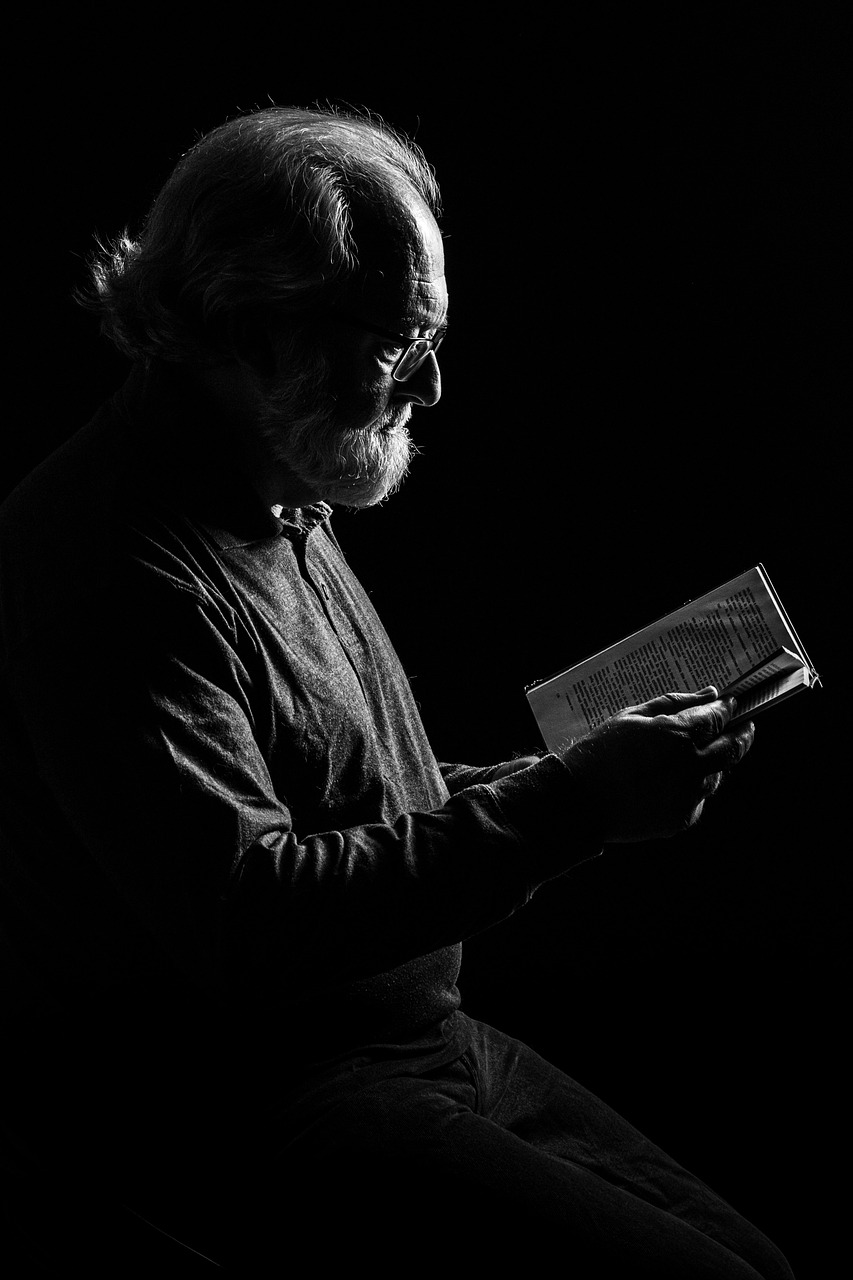 I've never liked the term Boomer, so I see this small change of focus by PRC as progress. If I have to have a tag, I'd prefer Reader, and hope this transcends generational labels. Of course I know that it doesn't, but as a Reader I can still imagine it does. That's one of the benefits of reading, along with time travel, which also defies generational labels.
I've never liked the term Boomer, so I see this small change of focus by PRC as progress. If I have to have a tag, I'd prefer Reader, and hope this transcends generational labels. Of course I know that it doesn't, but as a Reader I can still imagine it does. That's one of the benefits of reading, along with time travel, which also defies generational labels.
To address the issue, PRC spoke with outside experts, including those who have been publicly critical of its generational analysis; and invested in methodological testing to determine whether it could compare findings from earlier telephone surveys to the online ones being conducted now. Experiments were also conducted with higher-level statistical analyses that would isolate the effect of generation.
The process led to a set of guidelines that PRC believes "will help frame our approach going forward. Many of these are principles we've always adhered to, but others will require us to change the way we've been doing things in recent years.... By choosing not to use the standard generational labels when they're not appropriate, we can avoid reinforcing harmful stereotypes or oversimplifying people's complex lived experiences.... We'll only talk about generations when it adds value, advances important national debates and highlights meaningful societal trends."
PRC also released an article noting that while it can be useful to talk about generations, there are some important considerations for readers to keep in mind whenever they come across a news story or research about generations:
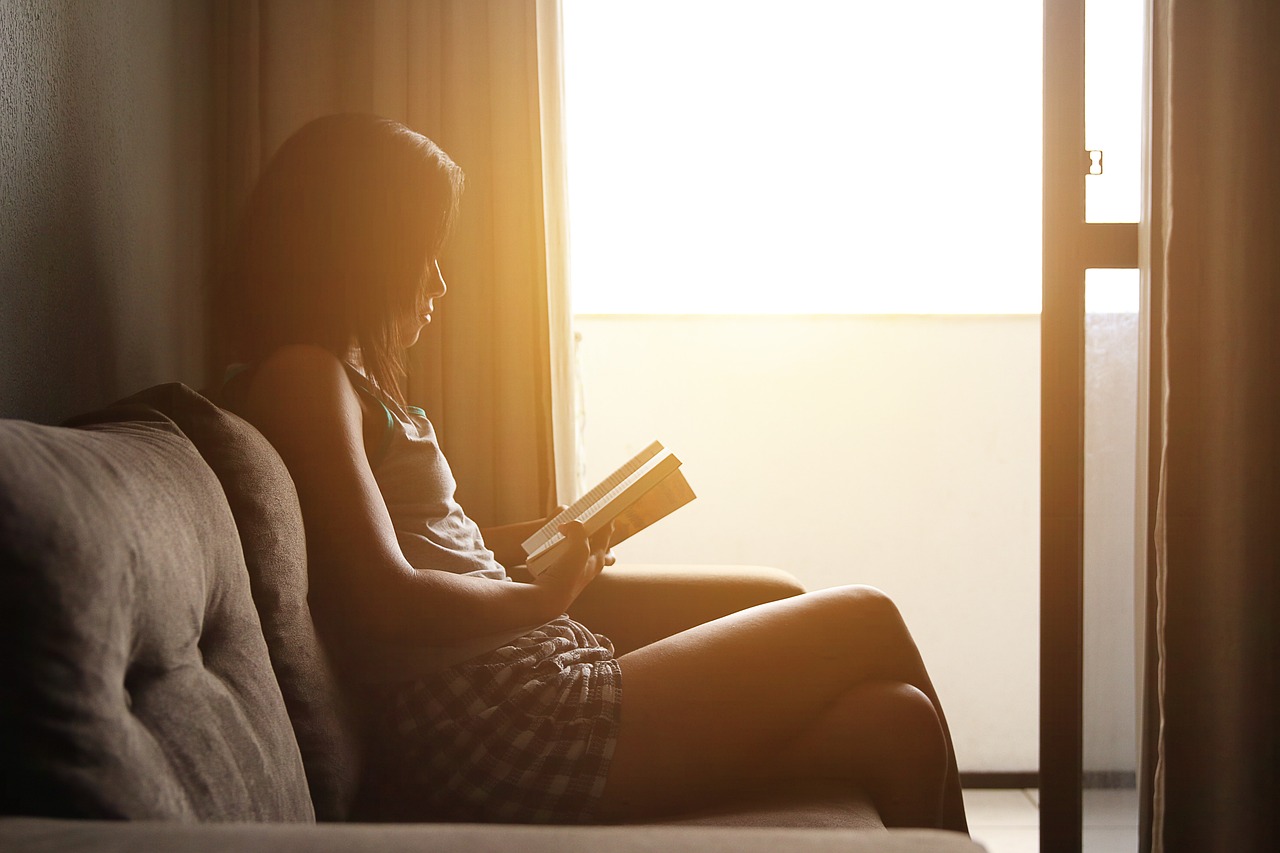 Reading the news from PRC triggered memories of a couple of SA columns I wrote in 2008 about Boomers and the book trade. Specifically, I recalled this sentence: "Boomers will age, but they won't grow old." Although it would make a fine clickbait headline now, it's actually from a book titled Generation Ageless: How Baby Boomers Are Changing the Way We Live Today... and They're Just Getting Started by J. Walker Smith & Ann Clurman.
Reading the news from PRC triggered memories of a couple of SA columns I wrote in 2008 about Boomers and the book trade. Specifically, I recalled this sentence: "Boomers will age, but they won't grow old." Although it would make a fine clickbait headline now, it's actually from a book titled Generation Ageless: How Baby Boomers Are Changing the Way We Live Today... and They're Just Getting Started by J. Walker Smith & Ann Clurman.
I was probably intrigued by the title then, but 15 years later it seems like speculative fiction. "Baby boomers, more than any other demographic group, will shape the future of the marketplace," the authors wrote. "They are in control and will remain so for decades to come. For boomers, getting older does not mean resigning oneself to a deceleration into death. They will continue to be actively involved in their lifestyles, spending lots of money and searching for more new things to try.... Boomers will age, but they won't grow old."
Spoiler alert: We did grow old. In 2008, I wrote, "Cue the theme music from Jaws. Baby Boomers are in the retail waters and they're not leaving soon. Will they still be reading in 2018 or 2028 or 2038? Yes. Will they still be buying books in bricks-and-mortar bookstores? Maybe."
As it turns out, they/we are still buying books from indies, and continued to do so even through a global pandemic. Fifteen years ago, I suggested that "the book world will have to find a way to surf Boomer-infested waters. One of the questions I initially asked readers was whether tech-savvy BBs will be transferring their book reading and buying habits to an online environment by the year 2018."
 At the time, one bookseller predicted that while some Boomers might gravitate to an online reading life by 2018, "bricks-and-mortar stores have less likelihood of losing them to the ether than we do the younger generations. They want to talk about what they know about--in person. They want the interaction that the cozy independent bookstore can offer. I think this is the generation that may be doing their research online, but we'll still get the pleasure of their company. Until mobility becomes an issue. Then you start delivering."
At the time, one bookseller predicted that while some Boomers might gravitate to an online reading life by 2018, "bricks-and-mortar stores have less likelihood of losing them to the ether than we do the younger generations. They want to talk about what they know about--in person. They want the interaction that the cozy independent bookstore can offer. I think this is the generation that may be doing their research online, but we'll still get the pleasure of their company. Until mobility becomes an issue. Then you start delivering."
Another bookseller called the 2018 question hard to answer, noting: "I've been a bookseller for 15 years, and all I can say for sure about the future is that it will be different. When online skyrocketed, I jumped, and for a couple of years what I was doing worked, but then everything changed, and I had to change again, too. Boomers in general may re-invent themselves over and over out of excitement or new enthusiasms; indie booksellers must re-invent themselves continuously to stay alive. The world is dynamic, and bookselling is a challenging way of life."
The world is dynamic and, as PRC noted, "people change over time." Millennial, Gen Z, Gen X, Boomer. Just call me Reader. And cue the #BookTok video.